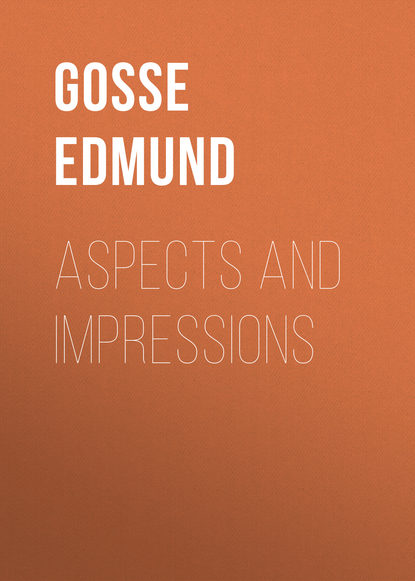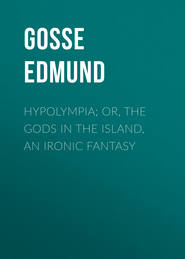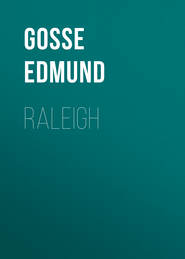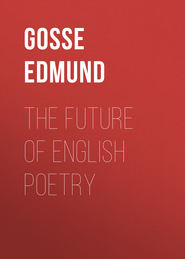По всем вопросам обращайтесь на: info@litportal.ru
(©) 2003-2024.
✖
Aspects and Impressions
Настройки чтения
Размер шрифта
Высота строк
Поля
Lovers of pleasure will think small beer of these desultory annotations. But in the case of a great dramatist like Congreve, whose career is very imperfectly known to us, I hold that all information is welcome, even though the separate details of it seem to be trivial. I present these glimmerings in the hope that they may not be useless to the future editor and biographer, whoever he may be, whose lamp will throw my taper into the shade.
THE FIRST DRAFT OF SWINBURNE'S ANACTORIA
NO modern poet offers a more interesting field for critical examination in his MSS. than Swinburne does, and in perhaps no other can the movement of mind, under changes of mood, be so accurately followed. His prose MSS. have a somewhat heavy uniformity, from which little is to be gathered, but the aspect of his written verse is so diverse as to be almost bewildering in its changes of form, not merely from one group of years to another, but even in the effusions of a single day. After long consideration, and a study of a multitude of MSS. written between 1857 and 1909, I have come to the conclusion that the critical value of Swinburne's drafts depends very much upon the spirit in which he happened to compose his poems. There were evidently three methods in his use. Some time ago there turned up a large number of dramatic and lyrical exercises, written by Swinburne as an undergraduate. These have greatly modified our conception of his early work, and they reveal in the apparently idle youth an amazing persistence in self-apprenticeship to the craft of verse. I hope to find leisure on a future occasion to describe these interesting and voluminous papers: in the meantime I only mention them here, in order to point out that they are written, with curious uniformity, and with very few corrections, in a hard, angular handwriting which Swinburne presently abandoned, but which resembles the formal script in which his later Putney poems appear to be composed.
I say "appear to be," because I am convinced, and my conviction is supported by the evidence of those who lived with him, that he adopted in later life the practice of composing and practically finishing his poems in his head before he put anything down on paper. He used to be heard walking up and down his room at The Pines, and then pausing awhile, evidently to write down what he had polished in his head. This accounts for the "clean" look of most of his later MSS., which appear to be first drafts, and yet have few corrections. What we now discover from the undergraduate MSS. of which I have spoken above is that, apparently, he adopted in early youth the plan to which he was to revert in old age. But of this plan there might be two varieties; Swinburne might work up his stanzas to perfection in his brain before writing anything, or he might be inspired with such a flow of language that the finished poem would slip smoothly from his brain. Doubtless there was something of both these in his practice, but I incline to think the former by far the most frequent. From neither can we obtain much impression of the mechanism of his invention.
But there was a third method, of which I am about to describe a peculiarly interesting example, which the poet adopted in the hey-dey of his poetical career. Soon after he left Oxford, perhaps in 1860, his handwriting changed its character; it became less boyish, but more crabbed and careless. I think that the weakness of his wrist may have been the cause of this alteration. It is particularly marked in the period from 1862 to 1870. His later writing was emphatic in its stiff inelegance, but usually legible; the script of his middle period was, at its best, lax and straggling, at its worst almost indecipherable. But it varied extravagantly, so much so that it is often difficult to believe that the same pen, and still more that the same hour, could have produced such violently diverse exhibitions. It has gradually dawned upon me, while helping Mr. Wise to disentangle an accumulation of rough copies and fragments, that the cause of this diversity lay in the degree of excitement which Swinburne put into the act of composition. He was always paroxysmal, always the victim of excruciating intellectual excitement which descended upon him like the beak of the Promethean vulture. To discover the points at which, in a particular composition, this fury of inspiration fell upon him, is to get a little closer to the secret of Swinburne's astonishing virtuosity, and is my excuse for the following observations.
So many of Swinburne's MSS. have been preserved, principally in the newspaper bundles which he so oddly carried with him, without ever examining, through all his peregrinations from Oxford to Putney, that it is particularly vexatious that those which we could least afford to spare, those of his blossoming period from 1861 to 1868, are very exiguously represented. No scrap of The Queen Mother has turned up, nor of the published form of Rosamond (an undergraduate sketch of this play remains). The original MS. of Chastelard exists only in a few fragments, the MS. sold in New York in 1913 being a clean copy for the press. According to the evidence of George Meredith, the first draft of Laus Veneris was written in red ink; the existing version, though containing corrections and cancelled passages, is written in black ink, and shows no sign of the frenzy of composition; it is evidently a transcript. Of Poems and Ballads no general MS. exists, but portions of the "copy" sent to the printers are in various collections. Most of these are transcripts, and show no sign of emotion or excitement. Several first drafts of Poems and Ballads, however, have been preserved, and of these the most remarkable that I have examined is that of Anactoria, of which I will now give some account.
Swinburne's first drafts offer none of the attractions which collectors of autographs commonly desiderate. They are never signed and rarely headed. That of the long poem afterwards called Anactoria has neither a title nor the Greek epigraph from Sappho. It is written, or rather wildly scribbled, on both sides of six sheets of blue foolscap, the water-mark of one of which is 1863, doubtless the date of the composition of the poem. These sheets were thrown away, and came into our hands in a great disorder of papers, mostly worthless, which left The Pines after Watts-Dunton's death. As we turned them over, in the welter of manuscript, my eye caught the line
Lilies, and languor of the Lesbian air,
and I realized what lay before us. Scattered through the bundle, five sheets were identified, but unfortunately one sheet was missing. By a happy chance, this also turned up in another parcel three years later, and the first draft is now, I believe, complete, although one passage in the published poem, as I shall presently show, is absent.
The text begins high up on the first sheet, and offers no peculiarity in the opening eight lines, which, with the slight exception of "Sting" instead of "Blind" in line 2, are identical with the published version of 1866. The handwriting is the usual script of Swinburne in the 60's, crabbed, but plain and calm. Suddenly, with line 7, a sort of frenzy takes the poet's pen, and at the side of the paper, in lines that slope more and more rapidly downwards, and in such a stumbling and trembling hand that they are with great difficulty to be spelt out, are interpolated the lines:
Severed the bones that bleach, the flesh that cleaves,
And let our sifted ashes drop like leaves.
I feel thy blood against my blood; my pain
Pains thee, and lips bruise lips, and vein stings vein.
Then, in very small clear script, opposite this outburst, is written, by itself, like a solo on a flute:
Let fruit be crushed on fruit, let flower on flower,
Breast kindle breast and either burn one hour.
To this immediately follows:
In her high place in Paphos,
which is the opening of line 64 in the published version. But the first draft stops here, leaving that half-line uncancelled, and proceeds quietly, in a large hand,
Saw love, a burning flame from crown to feet, and so on for six lines which are now to be found in the middle of the poem. Thereupon follows a breathless interlude of six couplets, scribbled with extreme violence and so curiously interwoven that the only way to explain their relation is to quote them:
I would my love could slay thee; I am satiated
With seeing thee live, and fain would have thee dead,
Vex thee with amorous agonies, and shake
Life at thy lips, and leave it there to ache;
Strain out thy soul with pangs too soft to kill,
Intolerable interludes, and infinite ill;
I would earth had thy body as fruit to eat,
And no mouth but some serpent's found thee sweet.
I would find grievous ways to have thee slain,
Intense device, and superflux of pain,
Relapse and reluctation of the breath,
Dumb tunes and shuddering semitones of death.
If this passage be compared with the published text, it will be observed that firstly, there are, with the single alteration of "kill" for "slay," no verbal modifications whatever: and that secondly the couplets are shifted about like counters in a game, or as if they were solid objects which might be put here, there, or anywhere in a liquid setting. The first draft of A Song of Italy, now in the possession of Mr. Thos. J. Wise, presents the same characteristics, though in a less degree.
We are still on the opening sheet of the draft of Anactoria, and it now presents to us, quietly and conscientiously written in the middle of the page:
For I beheld in sleep the light that is
In her high place in Paphos, heard the kiss
Of body and soul that mix with eager tears,
And laughter stinging thro' the eyes and ears,
a sort of tessera evidently left there to be fitted in whenever a favourable blank presented itself; we find it, without the smallest change of language, fixed in the middle of the poem. It is noticeable that the fragment "In her high place in Paphos" is now utilized.
A storm of excitement presently ruffles the poet, and he turns the sheet in such agitation that he holds it upside-down. Without leading up to it in any way, he starts a passage
She came and touched me, saying "Who doth thee wrong, Sappho?"
which closes abruptly with lines which may be cited because they contain several of the very rare instances in which the draft slightly differs verbally from the text of 1866:
Ah, wilt thou slay me lest I kiss thee dead?
"Be of good cheer, wilt thou forget?" she said:
"For she that flies shall follow for thy sake,
For she shall give thee gifts that will not take,
Shall kiss that will not kiss thee" (yea, kiss me)
"When I would not, etc."
We presently come across the only Couplet in the whole poem which was cancelled in the first draft, and yet reappears in the published text. This is:
Bound with her myrtles, beaten with her rods,
The young men and the maidens and the gods,
now very effectively introduced into the argument, but in the first draft destroyed with a whirling movement of the pen, so that it looks as if a dust-storm involved it. Written with frenzied violence, almost perpendicularly, the draft then presents a couplet:
Taught the sun ways to travel, woven most fine
The moonbeams, shed the starbeams forth as wine,
for which a place is now found immediately before the "Bound with her myrtles" couplet. The ecstasy of the poet seems to have suddenly flagged here, and there follows immediately, in sedate script, with even lines, the
Alas, that neither moon nor sun nor dew
Nor all cold things can purge me wholly through,
Assuage me nor allay me nor appease,
Till supreme sleep shall bring me bloodless ease,
Till time wax faint in all his periods,
passage which now takes its place near the very close of the poem. The actual closing lines are, in like fashion, appended to the third page of the draft. They read as follows:
Till fate undo the bondage of the gods,
And lay to slake the unquenchable desire
Lethean lotus on a lip of fire,
And pour around and over and under me








